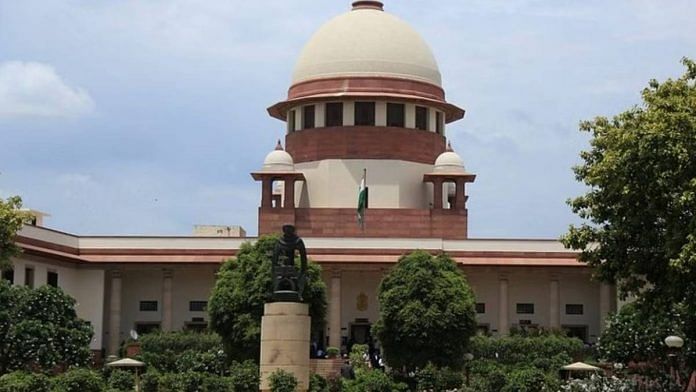New Delhi: The Supreme Court Monday imposed costs of Rs 50,000 on Adani Power, and rejected its application seeking over Rs 1,300 crore as an outstanding late payment surcharge (LPS) from three Rajasthan discoms — the electricity distribution licensees of the State of Rajasthan.
The order, passed by a bench comprising Justices Aniruddha Bose and P.V. Sanjay Kumar, asserted that the application filed by Adani was “not the proper legal course to make the demand on that count”.
“This application was listed before us on several occasions and for that reason we impose costs of Rs 50,000 to be paid by the applicant to be remitted to the Supreme Court Legal Aid Committee,” the order further stated.
Rajasthan discoms had entered into power purchase agreements with Adani Power in 2010. This was after Adani Power developed a coal-based thermal power plant at Kawai, Baran district, Rajasthan. Adani and Rajasthan executed a power purchase agreement for the supply of an aggregate contracted capacity of 1,200 MW in 2010.
According to the agreement between the Rajasthan government and Adani, the former was to make the best efforts to facilitate getting the coal linkage from the central government or coal from any other source for the project. However, when it failed, Adani Power imported coal from Indonesia instead.
In 2013, Adani approached the Rajasthan Electricity Regulatory Commission, demanding the loss incurred from having to import coal.
In August 2020, the Supreme Court upheld the decisions of the Rajasthan Electricity Regulatory Commission and the Appellate Tribunal for Electricity, holding that Adani Power was eligible to seek compensatory tariff from Rajasthan discoms, for power supplied since 2013.
However, Adani Power filed a miscellaneous application in the matter in July 2022, despite the fact that the court had already pronounced a judgment in the case, and demanded over Rs 1,300 crore as an outstanding late payment surcharge.
According to news reports, Adani submitted that it is liable to charge an interest rate of State Bank Advance Rate (SBAR) + 2 percent, for the delayed payments.
However, in the 2020 judgment, the Supreme Court ruled that “payment of 2 percent in excess of the applicable SBAR per annum with monthly rest would be on a higher side”.
It had, therefore, directed the discoms to pay interest/late payment surcharge according to applicable SBAR for the relevant years, which should not exceed 9 percent per annum.
Also Read: From unmanned naval systems to artillery guns, here are Adani Group’s focus areas in defence sector
‘Abuse of process’
In January, senior advocates from both parties had locked horns in the Supreme Court.
While senior advocate Abhishek Manu Singhvi defended Adani’s application, senior advocate Dushyant Dave, assisted by advocate Kartik Seth, appeared for one of the discoms, Jaipur Vidyut Vitran Nigam Limited, and accused Adani of abusing the process of the court.
The latter contended that Adani Power had failed to file a review against the 2020 judgment, and should not be allowed to get a relief through an application now. In other words, a review petition was the correct course of action, if Adani wanted a change in the Supreme Court’s 2020 judgment. The review plea filed by the discom against the August 2020 judgment was rejected in March 2021.
“That’s an abuse of process. Allowing them (Adani) to withdraw their petition would not be in the public interest. Rs 1,400 crore is sought to be extracted from the state. They just wanted to grab another order from this court…That’s why they have taken this shortcut,” Dave was quoted as saying by LiveLaw, during the last date of hearing in January.
The court had then reserved its verdict on Adani’s application in January.
On Monday, it rejected the application, miffed with the fact that Adani had filed an application for clarification two years after the Supreme Court settled the issue in August 2020, instead of a review petition.
This is an updated version of the report.
(Edited by Richa Mishra)
Also Read: Adani-Hindenburg row: A look at petitions filed in case and what Supreme Court has said now



